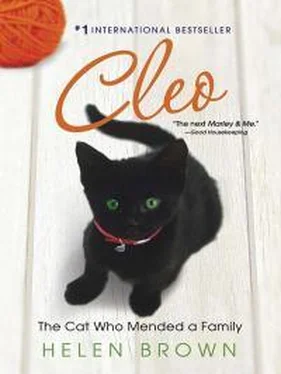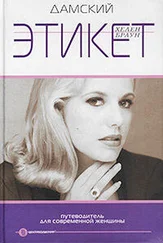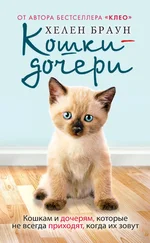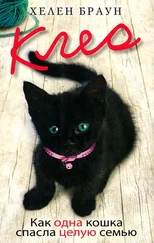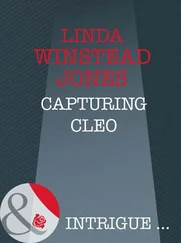Maybe we didn’t need to go home. We could just keep driving till we hit the motorway that slithered around the harbor and headed north. The house, cat, shaky marriage and friends with their harrowing outbursts of sympathy could all be left behind. We’d go and live with Mum in New Plymouth, the provincial town I grew up in—for about two weeks until Mum and I drove each other nuts. The town and I didn’t seem to fit together anymore, anyway. Whenever I went back for funerals or birthdays, people invariably asked two questions: “How’s the writing?” and “When are you leaving?” The second was always easier to answer than the first. I never classified what I did as “writing.” It was more about sharing stories with people whose lives were equally imperfect, and having a few laughs together. Readers of my column were like friends, with the added bonus of almost never turning up in the flesh. They had been amazingly kind lately. I’d grown so accustomed to sharing intimate aspects of our lives with them through my weekly installments it seemed appropriate to tell them about Sam’s death. The only alternatives were to continue writing diverting tales about domestic life as though nothing had happened (impossible), or retire. As I sat in bed, dripping tears into my portable typewriter, and recounted the events of that dreadful day, I had no idea I was tapping into a great source of healing. Letters and cards arrived in the hundreds, demonstrating the enormous generosity of strangers. Their letters, a few from people who’d also lost children, offered more strength than almost anything else. I carried a carefully typed sheet of paper around in my handbag. It was from an Indian couple whose two-year-old had wandered into a national park and was never seen again. Ten years after the event they said they were still sad, but surviving. They were living proof that parents who lose children in dreadful ways—they’re always dreadful—can survive.
An even bolder option would be to keep heading north till we reached the flashy lights of Auckland, a bigger city, where I’d get a job on a newspaper or magazine. Except only a lunatic would hire a grief-raddled, worn-out solo mum.
I nudged the car against the earthen bank draped with ferns at the top of the zigzag. The city spread below us in cubes of grey, windows glinting in the sun. In one of those office towers would be the woman who’d taken Sam’s life on her way back to work from her lunch break. I wondered what she looked like, and what she was doing. Sliding a file out of a cabinet, on the phone to someone? Wellington was such a small place we were bound to have some acquaintances in common. Nobody had given a hint they knew her. Perhaps they sensed her life would be in danger if I set eyes on her. She’d have to appear at the court inquest soon and confess she was drunk or driving too fast. Her punishment would come in good time.
Beyond the office blocks and over the hills past Lena’s house was the cemetery where Sam’s body lay. Beyond that, on Makara Beach, families would be making the most of what was left of the summer. Mothers would be spreading rugs over the stones, pouring orange cordial and telling their children the waves weren’t as cold as they looked. Boys would be charging into the surf, their skin goose-pimpled and gleaming in the waves. Some of them would be Sam’s friends. I didn’t want to see them or their mothers again.
A southerly breeze spiked my nostrils. Not so long ago I’d relished the thought of living in our house on the fault line, fixing the place up, along with our marriage. Suddenly it seemed too hard.
Rob scrambled out of the car, eager to show Cleo her new bed. Laden with kitty litter and the plastic tray I followed him down towards the house. I tried to prepare mentally for whatever fresh hell the-house-that-now-belonged-to-a-cat had to offer. At least it was still standing, its painted beams peeling in the sun. There was no sign of the kitten.
When I turned the key a tiny panther gamboled down the hall towards us, her tail waving like a banner. She emitted squeaks of welcome, each ending in a higher tone: Where have you been? Why did you take so long? Did you bring me anything? She sprang up on her hind legs, plunged her chin into our hands and flossed her teeth on our fingernails. The throb of her purr told us all was forgiven. We’d turned the sky blue again and glued the sun back in the sky simply by returning. I was entranced once more. How could I have considered sending her away? We needed her almost as much as she needed us.
But when Rob thrust the leopard-skin bed at her, Cleo arched her back and fluffed her tail out like a bottlebrush. She hissed violently. The cat bed was as threatening as the leopard it imitated. She pounced and savaged it, thumping it with her hind legs before swiftly withdrawing under the sofa. The enemy had no time to retaliate.
Cleo refused to emerge until her foe had retired to the laundry. We didn’t realize at the time, but it was the beginning of lifelong “issues” with bedding. Once it was gone she shot out from under the sofa to skid on a supermarket bag before climbing inside it. After catching her breath inside its plastic belly she ambushed the phone cord and scuttled to the safety of the kitchen pot cupboard.
Our cat was wired tighter than a violin. Every shadow, ball of dust, shopping list, discarded ribbon and household implement was a potential attacker. Noises alarmed her. She jumped at the squeak of a door. A distant bird’s song spiked every hair on her body.
No sock in the house was safe. She abducted them from bedrooms, empty shoes and the laundry basket, carefully separating each one from its twin so it was vulnerable to assault. The sock was then dragged through the house by its toe, tossed in the air, caught between two sets of claws and tortured mercilessly until it feigned death.
I was developing a headache. Cleaning up the day’s mess was pointless. It only gave the kitten scope to invent some new form of household devastation.
“Don’t you dare !” I said when Cleo sprang on the hall table and patted a tall vase of foxgloves with a tentative paw. Looking up at me she shook her whiskers and shrunk into her coat. I was serious. She lowered her paw and jumped obediently back on to the floor. I’m not proud to say I felt a glow of satisfaction. Having a close to wild animal respond to my commands was exhilarating. Megalomaniac teachers must experience similar power surges. Pleased with my venture into authoritarianism I glided into the kitchen to put the kettle on. But like every dictator I was delusional.
The house shook with a resounding thud. I charged back into the hall. Foxglove stems were sailing through the air, closely followed by the vase, from which billowed a spout of water. Surfing the waterfall was a four-legged figure, spread-eagled in an attempt to stay upright.
The vase crashed to the ground. Foxgloves scattered in elegant angles down the hallway. I watched as the kitten was engulfed. Caught in a flower-vase pipeline, she had no choice but to ride it out.
Like most natural disasters, it was over almost as quickly as it started. A house that seconds earlier had resembled a normal, if scruffy, family home was now worthy of relief funds from the UN. Sploshing through the tide, Cleo shook each paw after each step as if the water caused personal offense. Ears flattened, tail drooped, she wouldn’t have won first prize in any beauty contest. Or even best and fairest.
I yelled at Rob to get some towels. Together we tried to bring the house back to dry land. I soaked up the carpet damage while Rob toweled the animal dry. It was the first time I’d seen her anything close to humble.
Healer
A cat loves with all its heart, but not so fervently that there’s nothing left over for itself.
Читать дальше
